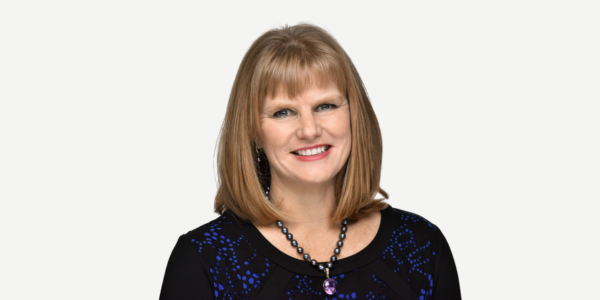More than good intentions
Scholarship recipient and Chair of Pregnancy Help, Rachel Vicars MInstD, says finance course gave her confidence to ask questions.

Directors are working longer hours and many have turned down roles due to time pressure as the median hours worked climbs back towards levels last seen during the pandemic, the 2023/24 Directors’ Fees Report reveals.
Produced by the Institute of Directors (IoD), in partnership with EY, the report provides key information on director remuneration and board practices in New Zealand. It brings together data for 3,951 directorships held by 1,124 IoD members across 1,695 organisations.
The median fee for non-executive directors rose to $52,000 in 2023, up 0.9% from 2022, while average hours worked increased to 132, up from 111 in 2022 and back to levels not seen since the height of Covid-19.

Dr Michael Fraser
“Directors have been telling us for some years that governance is becoming more challenging and time consuming,” says Dr Michael Fraser, IoD general manager of learning and engagement.
“What we are seeing today is that issues such as climate change, supply chain disruption, the changing expectations of stakeholders and regulators, and the sustainability of business models – amid ongoing economic disruption – are making governance roles more complex.
“These are all areas in which directors must take the lead, even when the path forward is not clear. They are all areas in which good decisions are important for the future prosperity of New Zealand.”
Reflecting the increasing demands on directors, 36.4 percent of respondents had turned down a governance role in the past year, with more than half of them citing the time commitment required.
“In one sense this is good news because it shows directors are aware of how much time and attention these roles require and they are not prepared to take them on if they cannot do them justice,” Fraser says.
“But we know that fee levels also play a role in these decisions, with 19 percent citing this as a factor.”
One of the big movements in the 2023 report was a jump in the proportion of directors in unpaid positions. This more than doubled to 26.6 percent of respondents, up from 12.4 percent a year earlier. Many of these roles are in the not-for-profit (NFP) sector.

Una Diver
“The feedback from directors involved with NFP governance highlighted a desire to give back to their communities or support organisations they feel an affinity for,” says EY partner Una Diver.
“New Zealand’s NFPs are incredibly important in terms of filling gaps in our social safety net, delivering recreational opportunities and supporting communities. The main reason 46 percent of respondents in NFP roles take them on is to give back to the community. Similarly, 40 percent cite a strong belief in the work their organisations are doing.”
Another significant movement was in fees paid to trustees, which rose 9.2 percent to a median $13,100, up from $12,000 a year earlier.
“Trustee fees had been largely static for a number of years, so there may be an element of catch up going on there,” Diver says.
“We also know that Incorporated Societies Act 2022, which comes into effect this year, will extend the responsibilities and personal liabilities of officers of those organisations, and it is possible this is influencing decisions on fees.”
Among non-remuneration offerings, the number of respondents covered by Directors and Officers (D&O) liability insurance saw a significant jump with 98.7 percent of respondents now insured, up from 89.5% in 2022.
“Directors have been facing increasing personal risk for a number of years now. The growing complexity of governance, the uncertainty that surrounds issues such as climate change and the inclusion of personal liability in legislation are all combining to increase the potential risks associated with being a director,” Diver says.
“Take up of D&O insurance has been increasing in parallel with this. While 78.5 percent of directors were covered back in 2020, this has gradually risen until today almost all of the respondents in the report have some form of D&O coverage.”
The median number of directorships held was three, unchanged from 2022. However, directors appear to be moving on more quickly with the typical length of a directorship falling to four years, down from six years in 2022.
“While many boards adopt policies that set out a term limit, often a maximum of nine years, considerable time and investment goes into on-boarding directors. Boards need to strike a balance between directors that have institutional knowledge and understand the business, and their need for a diverse range of skills, knowledge, experience and perspectives,” says Fraser.
“At the IoD, we believe in the power of good governance to deliver a strong, fair and sustainable future for New Zealanders. Courageous, skilled and committed directors are essential to navigating organisations successfully into the future so, if there is a high turnover, this may suggest bigger issues on the horizon. Most likely it reflects the difficult environment in which directors find themselves and their organisations.”
Diver adds that the oft-cited fast pace of change is a reality in the governance community, and the report reveals this across a number of factors.
“For instance, we have seen the pay gap for non-executive directors narrow to a median $53,847 for males, $50,000 for females. The gap is still there, but it is not as pronounced as it used to be. This year we also had a record number of Māori directors offer their perspectives, comprising 7 percent of respondents, up from 0.1 percent in 2022.”
It’s too early to know which trends are here to stay, says Fraser, but there does appear to be a broadening of the governance ‘talent pool’ underway and increased awareness of the important role directors play in the success of organisations, communities and the country.
“At the IoD, we have seen a surge of interest in governance since the start of the pandemic. Our membership hit a new high of 10,548 at December 2022 and the types of support and training directors want has continued to expand.
“It is likely this reflects a mix of people new to governance wanting to hit the ground running and established directors seeking to maintain and enhance their skills in the face of new and evolving challenges,” says Fraser.
The full Directors’ Fees Report 2023/24 contains comprehensive detail and is available for purchase.